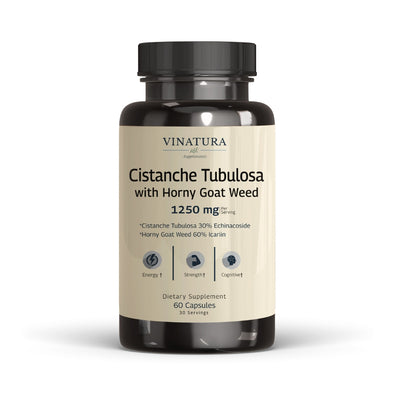
Tongkat Ali Vs Ashwagandha: What's Better & How To Combine?
Tongkat ali is famous for its ability to boost testosterone, which helps improve sexual health, energy levels, and athletic performance. On the other hand, Ashwagandha is great for managing stress, reducing anxiety, improving sleep, and enhancing brain function.
Both tongkat ali and ashwagandha offer similar benefits and can work well together when combined.
So how can you combine tongkat ali and ashwagandha correctly, and who are they suitable for? Let's explore this in the comparative article below.
Before exploring further, please read the disclaimer located at the end of this webpage.
Key Takeaways
- Tongkat Ali is better at increasing testosterone, boosting immune function, and energy compared to Ashwagandha.
- Ashwagandha excels in improving brain health, mental function, and reducing stress and anxiety.
- Combining Tongkat Ali and Ashwagandha is safe, but it's important not to self-administer at home.
- Look for products from reputable suppliers that combine Tongkat Ali and Ashwagandha safely rather than trying to mix them yourself.
The Comparison Table Between Benefits Of Tongkat Ali Vs Ashwagandha
Below is a summary comparison table of the main benefits of Tongkat Ali Vs Ashwagandha:
| Benefits | Tongkat Ali | Ashwagandha |
| Enhance Healthy Testosterone Level | High Efficacy | Moderate Efficacy |
| Enhance Energy Level | High Efficacy | Moderate Efficacy |
| Libido & Sexual Function | High Efficacy | Moderate Efficacy |
| Support Weight Loss | High Efficacy | Moderate Efficacy |
| Immune System | High Efficacy | Moderate Efficacy |
| Stress And Cognitive Function | Moderate Efficacy | High Efficacy |
| Sports performance | High Efficacy | High Efficacy |
The comparison table of Ashwagandha and Tongkat Ali
Ashwagandha Vs Tongkat Ali Benefits
Tongkat Ali and Ashwagandha are both natural herbs that can enhance physical health, increase testosterone levels in men, reduce stress, and improve immune function.
But what are their differences, and which one provides better results? The comparison below will help clarify.
Enhance Healthy Testosterone Level

Tongkat Ali may boost testosterone levels more effectively than Ashwagandha.
In one study, using Tongkat Ali on male rats [1] showed that testosterone levels increased by 30.2%. Meanwhile, another study on the effects of Ashwagandha in men [2] showed a 14.7% increase in testosterone levels over 16 weeks.
Enhance Energy Level
Tongkat Ali has been shown to be more effective than Ashwagandha at boosting overall energy levels and improving the immune system.
A study on the effectiveness of Tongkat Ali in athletes [3] found that Tongkat Ali helps maintain normal levels of Cortisol and Testosterone, preventing overtraining, stabilizing, and increasing necessary energy levels by accelerating recovery after training.
However, more research is needed to confirm this function in Ashwagandha.
According to MDNixon - I started taking tongkat ali a few weeks ago. I noticed that I feel much better mentally, it’s like I almost feel slightly aggressive, but in a good way—this “I want to accomplish things” type of aggression. My mood has improved, and I can focus better throughout the day.
Libido & Sexual Function
Tongkat Ali is more effective than Ashwagandha in boosting sexual activity and function in men.
It helps extend erection time and improves sperm motility, especially in older men or those with low androgen levels.
Research conducted in 2022 shows that Tongkat Ali helps maintain physical condition, and improve sexual desire in men, especially in the elderly [4].
According to Carl Jacobson - I’ve used tongkat ali and definitely noticed that it increased my libido and the number of erections per day. My testicles also felt bigger and heavier.
Support Weight Loss
When it comes to weight loss, Tongkat Ali outperforms Ashwagandha by burning fat, reducing body fat, and stabilizing BMI in obese individuals after three months.
Many studies show that Tongkat Ali supports hormone balance, enhances muscle strength, and maintains good exercise performance, especially for athletes or those looking to lose weight.
Immune System

Tongkat Ali is better than Ashwagandha at enhancing and improving the immune system.
In a study on the immune regulatory function in middle-aged people who drank Tongkat Ali extract [5], after four weeks, the immune indices in the experimental group were significantly higher. The total number of T cells and CD4+ T cells in this group also showed more evident progress.
Stress and Cognitive Function
On the other hand, Ashwagandha is more effective than Tongkat Ali in reducing stress and improving cognitive function.
Studies show that Ashwagandha helps lower serum cortisol levels, decrease glucose levels, and modulate immunity against anxiety [6].
Side Effects and Safety of Tongkat Ali Vs Ashwangandha
Tongkat Ali is considered safe even when used in high doses [8] and is classified as category 5 in the United Nations' Globally Harmonized System of Classification and Labelling of Chemicals (GHS).
However, for individuals with a history of allergies, Tongkat Ali may cause issues like insomnia, increased anxiety, headaches, and digestive disorders. Additionally, this herb may interact with certain medications such as anticoagulants, blood pressure meds, and diabetes medications [7].
Research shows that Ashwagandha is safe for consumption [9], but using it in large doses may cause stomach discomfort, including indigestion, vomiting, and even diarrhea. For those allergic to Ashwagandha, its use can lead to itching, rash, swelling, or difficulty breathing.
It's also important to note that Ashwagandha can potentially interact with common prescription medications [7].
To avoid any unwanted effects and ensure safety, you should understand your needs, be aware of any allergic reactions, or consult a doctor to choose the most appropriate option.
Learn more: Ashwagandha Vs. Ginseng: Which Adaptogenic Herb Should You Choose?
Recommended Dosage of Tongkat Ali and Ashwagandha

Using Tongkat Ali and Ashwagandha in reasonable doses is important to avoid health issues.
Depending on the purpose and primary function, different dosages are recommended. On average, for each consumption, you should use up to 1250mg/day of Ashwagandha [9] and 250-600 mg/day for its stress and anxiety-reducing effects [11].
For Tongkat Ali, the recommended dose is 50-200 mg/day [8], but it is still safe to use higher doses up to 600 mg/day [4].
To ensure effectiveness and safety, it is advised to consult with a doctor or healthcare professional to find the most accurate usage method.
What Is Better: Ashwagandha Vs Tongkat Ali?
There isn’t a clear-cut answer because both herbs offer different health benefits, and the right choice depends on your personal health goals, age, and lifestyle.
Tongkat Ali primarily helps increase testosterone levels, which can boost energy, enhance sex drive, and support the immune system.
Ashwagandha, on the other hand, helps reduce cortisol, a hormone related to stress. If you’re worried about side effects, it’s important to consult a healthcare provider.
So, which one is better? It really depends on what you’re trying to achieve. If you want to reduce stress and improve brain function, Ashwagandha might be your best bet. But if you’re looking to boost energy and testosterone, Tongkat Ali could be a better fit for you.
Can You Combine Tongkat Ali and Ashwagandha Together?
Currently, no studies or information indicate that combining these two herbs is a mistake or harmful.
Therefore, you can confidently use Tongkat Ali and Ashwagandha together if you follow the recommended dosages to achieve quick effects.
However, effects can vary between individuals, so remember to consult a doctor or expert for safety and accurately meet your health needs.
How to Combine Tongkat Ali and Ashwagandha for Maximum Effects?
To achieve the best results when combining Tongkat Ali and Ashwagandha, users are advised not to use this combo in doses higher than 500mg, not to use it for a long period, and ideally, combine at low doses and use continuously for a maximum of two weeks.
Combining Ashwagandha with Tongkat ali at home may be harmful to your health. Thus, the ideal method to utilize Ashwagandha and Tongkat Ali is to get products that combine supplements from reliable brands and ensure you follow the manufacturer's directions.
While it is possible to use them together, experts advise using each compound separately to conveniently monitor and determine which product is most suitable for you.
You may also like: Fadogia Agrestis vs Tongkat Ali: Can We Combine Them?
Frequently Asked Questions
What's the Main Downside of Ashwagandha?
The main downside of Ashwagandha is that continuous use over a long period can affect the liver, causing conditions such as jaundice, liver damage, or even liver cancer.
Additionally, Ashwagandha can cause various psychological side effects, including emotional disturbances and depression, particularly in individuals with fluctuating hormone levels.
Between Tongkat Ali and Ashwagandha, Which One Helps Sleep Better?
Tongkat Ali and Ashwagandha support and complement each other in improving sleep quality, reduces stress, and deepens sleep quality.
Tongkat Ali helps extend sleep duration and reduce the time it takes to fall asleep by lowering body temperature. Taking Tongkat ali before bed properly may improve your sleep quality.
However, combining these two compounds before bedtime is not recommended because they have different functions.
Which is Better for Losing Weight, Tongkat Ali or Ashwagandha?
Tongkat Ali performs better than Ashwagandha in promoting weight loss. This is because Tongkat Ali has thermogenic properties, stimulating metabolism and leading to faster fat burning. A study also showed that after consuming Tongkat Ali for 112 days, the Body Mass Index (BMI) of obese subjects had significantly decreased, supporting the weight loss process.
Which is More Effective at Reducing Fatty Acids, Tongkat Ali or Ashwagandha?
Ashwagandha acts quicker in reducing fatty acids. Free fatty acid levels significantly decrease after 72 hours of consuming Tongkat Ali and even more rapidly with Ashwagandha consumption.
Can Ashwagandha or Tongkat Ali Lower Stress Hormones (Cortisol) Better?
Tongkat Ali is more effective than Ashwagandha in lowering the stress hormone cortisol in the short term. However, in long terms, Ashwgandha is more effective in managing stress. In a study conducted over 30 days, Cortisol levels decreased by 16% after consuming Tongkat Ali, compared to a 13.7% decrease with Ashwagandha. However, upon more extended consumption, precisely 60 days, Ashwagandha shows better stress-reducing effects (23.7% decrease).
What's the Best Way to Combine Tongkat Ali and Ashwagandha for The Most Benefits?
It is recommended to use Tongkat Ali in combination with Ashwagandha continuously for two weeks, at doses below 500 mg, to achieve the best effects without affecting the liver and other mental health issues.
Conclusion
In summary, Tongkat Ali vs Ashwagandha are nutrient-rich herbal supplements offering numerous health benefits. To determine which product is best suited for you, it is essential to carefully research your needs and refer to the information provided in this article. Additionally, remember to seek advice and support from a healthcare professional for the most accurate answer.
Related Article:
- Shilajit And Ashwagandha: Differences & Combo Benefits
- Best Tongkat Ali Supplements 2024: Forms & Price And Origin
- 18 Best Ashwagandha Supplements for Stress & Testosterone in Men
References
- [1] Rehman, Shaheed, et al. “Review on a Traditional Herbal Medicine, Eurycoma Longifolia Jack (Tongkat Ali): Its Traditional Uses, Chemistry, Evidence-Based Pharmacology and Toxicology.” Molecules, vol. 21, no. 3, 10 Mar. 2016, p. 331, https://doi.org/10.3390/molecules21030331.
- [2] Lopresti, Adrian L., et al. “A Randomized, Double-Blind, Placebo-Controlled, Crossover Study Examining the Hormonal and Vitality Effects of Ashwagandha (Withania Somnifera) in Aging, Overweight Males.” American Journal of Men’s Health, vol. 13, no. 2, Mar. 2019, p. 155798831983598, https://doi.org/10.1177/1557988319835985.
- [3] Talbott, Shawn M. “Chapter 63 - Human Performance and Sports Applications of Tongkat Ali (Eurycoma Longifolia).” ScienceDirect, Academic Press, 1 Jan. 2019, www.sciencedirect.com/science/article/abs/pii/B9780128139226000631.
- [4] Talbott, Shawn M, et al. “Effect of Tongkat Ali on Stress Hormones and Psychological Mood State in Moderately Stressed Subjects.” Journal of the International Society of Sports Nutrition, vol. 10, 26 May 2013, p. 28, www.ncbi.nlm.nih.gov/pmc/articles/PMC3669033/, https://doi.org/10.1186/1550-2783-10-28.
- [5] George, Annie, et al. “Immunomodulation in Middle-Aged Humans via the Ingestion of Physta® Standardized Root Water Extract of Eurycoma Longifolia
- [6] Speers, Alex B., et al. “Effects of Withania Somnifera (Ashwagandha) on Stress and the Stress-Related Neuropsychiatric Disorders Anxiety, Depression, and Insomnia.” Current Neuropharmacology, vol. 19, no. 9, 12 July 2021, https://doi.org/10.2174/1570159x19666210712151556.
- [7] Young Min Han, et al. “In VitroEvaluation of the Effects ofEurycoma LongifoliaExtract on CYP-Mediated Drug Metabolism.” Evidence-Based Complementary and Alternative Medicine, vol. 2015, 1 Jan. 2015, pp. 1–6, https://doi.org/10.1155/2015/631329. Accessed 3 Jan. 2024.
- [8] ---. “Human Performance and Sports Applications of Tongkat Ali (Eurycoma Longifolia).” Nutrition and Enhanced Sports Performance, 2013, pp. 501–505, https://doi.org/10.1016/b978-0-12-396454-0.00053-9. Accessed 27 May 2021.
- [9] Raut, Ashwinikumar A, et al. “Exploratory Study to Evaluate Tolerability, Safety, and Activity of Ashwagandha (Withania Somnifera) in Healthy Volunteers.” Journal of Ayurveda and Integrative Medicine, vol. 3, no. 3, 2012, pp. 111–4, www.ncbi.nlm.nih.gov/pubmed/23125505, https://doi.org/10.4103/0975-9476.100168.
- [11] Salve, Jaysing, et al. “Adaptogenic and Anxiolytic Effects of Ashwagandha Root Extract in Healthy Adults: A Double-Blind, Randomized, Placebo-Controlled Clinical Study.” Cureus, vol. 11, no. 12, 25 Dec. 2019, www.ncbi.nlm.nih.gov/pmc/articles/PMC6979308/, https://doi.org/10.7759/cureus.6466.
- [12] Lopresti, Adrian L, et al. “An Investigation into the Stress-Relieving and Pharmacological Actions of an Ashwagandha (Withania Somnifera) Extract: A Randomized, Double-Blind, Placebo-Controlled Study.” Medicine, vol. 98, no. 37, Sept. 2019, p. e17186, www.ncbi.nlm.nih.gov/pubmed/31517876, https://doi.org/10.1097/MD.0000000000017186.
- [13] Langade, Deepak, et al. “Efficacy and Safety of Ashwagandha (Withania Somnifera) Root Extract in Insomnia and Anxiety: A Double-Blind, Randomized, Placebo-Controlled Study.” Cureus, vol. 11, no. 9, 28 Sept. 2019, https://doi.org/10.7759/cureus.5797.
- [14] Leitão, Alice Erwig, et al. “A 6-Month, Double-Blind, Placebo-Controlled, Randomized Trial to Evaluate the Effect of Eurycoma Longifolia (Tongkat Ali) and Concurrent Training on Erectile Function and Testosterone Levels in Androgen Deficiency of Aging Males (ADAM).” Maturitas, vol. 145, Mar. 2021, pp. 78–85, https://doi.org/10.1016/j.maturitas.2020.12.002.
- [15] Chen, CheeKeong, et al. “Effects of Eurycoma Longifolia Jack Supplementation Combined with Resistance Training on Isokinetic Muscular Strength and Power, Anaerobic Power, and Urinary Testosterone: Epitestosterone Ratio in Young Males.” International Journal of Preventive Medicine, vol. 10, no. 1, 2019, p. 118, https://doi.org/10.4103/ijpvm.ijpvm_404_17.
- [16] ---. “Exercise Associated or Not to the Intake of Eurycoma Longifolia Improves Strength and Cardiorespiratory Fitness in Men with Androgen Deficiency.” Complementary Therapies in Clinical Practice, vol. 42, Feb. 2021, p. 101301, https://doi.org/10.1016/j.ctcp.2020.101301. Accessed 6 Feb. 2023.
- [18] Lim, P J, et al. “Effect of Eurycoma Longifolia Jack Extract on Lipolysis in Collegiate Athletes: Pilot Study.” IFMBE Proceedings, 1 Jan. 2017, pp. 97–100, https://doi.org/10.1007/978-981-10-3737-5_20.
Author

Product Disclaimer
The dietary supplement products mentioned on this website are formulated based on scientific research and adhere to FDA guidelines for dietary supplements. However, the content of the articles has not been evaluated by the Food and Drug Administration (FDA) and is not intended to promote or endorse any specific product. Any products sold on this website are not intended to diagnose, treat, cure, or prevent any disease.
Opinions and Endorsements
Any claims, statements, or opinions expressed in the articles are those of the author(s) and do not necessarily reflect the views or opinions of the manufacturers of the dietary supplement products. The products sold on this website are separate from the content of the articles and are not directly endorsed or associated with the information presented here.
Liability Disclaimer
The author(s) of the articles, website, and manufacturers of the dietary supplement products do not assume any liability for any potential consequences arising from the use of the information provided in the articles. It is recommended that individuals consult with a qualified healthcare professional before making any dietary or lifestyle changes, including the use of dietary supplements.
Product Usage
Please refer to the product labels and packaging for specific usage instructions and guidelines for the dietary supplement products sold on this website.
Customer Support
For any concerns or questions regarding the dietary supplement products, please contact our customer support team, who will be more than happy to assist you.








Leave a Comment
Be the first to comment.
What do you think?